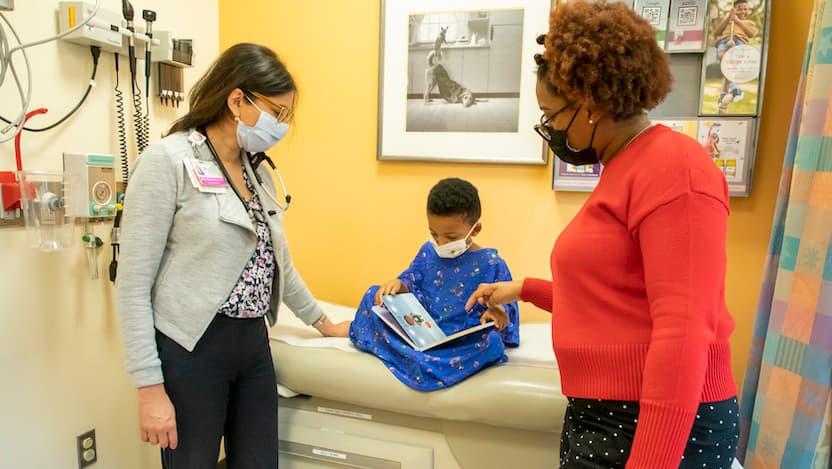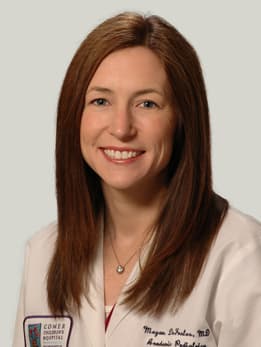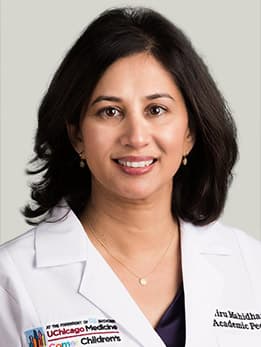A visit to the doctor and a brand-new book

It’s not unusual to see a toddler clutching their very own book after a checkup at the University of Chicago Medicine Comer Children’s Hospital Academic Pediatric Clinic. That’s because at every well-child visit, from ages 6 months to 5 years, children and their caregivers get a special gift: a new book to read and take home.
Reach Out and Read (ROR) is an evidence-based national program, endorsed by the American Academy of Pediatrics, that encourages families of young children to read aloud daily together. Studies have shown that when caregivers and parents incorporate books into a child’s life from a very young age, they expose their child to a broader vocabulary, have more language-rich interactions and improve pre-literacy skills.
“We know that the connections the brain makes in the child’s early years are shaped by the back and forth interactions that parents have with children, starting at birth," said UChicago Medicine Comer Children's Hospital. “It’s these interactions during the critical first years of brain development that establish a strong foundation for school success.”
ROR was established at Comer Academic Pediatrics in March 2021, thanks to a $30,000 grant from the Comer Children’s Development Board. In 2022, ROR became a part of the Comer Ambulatory Budget. The Department of Pediatrics decision to invest in this important program underscores UCM’s commitment to improving child health outcomes and makes it a leader amongst its peer institutions. Readiness for kindergarten and reading by third grade are key health disparity metrics. ROR helps address the language and literacy gaps between low- income and high- income children.
We’re always figuring out strategies to support learning and help with information, to bridge the supports that families need to help their kids understand the world better.
Pediatric clinicians use the books as a catalyst to discuss with parents the importance of reading, back-and-forth communication and limiting screen time. Whether it’s reading the actual story or talking about the pictures, daily reading aloud improves preliteracy skills, increases self-regulatory behavior and promotes parent-child bonding. Parents are reminded that they are their child’s first teacher.
“I’ll walk into an exam room with a 6-month-old and give a board book to the baby, then talk to the parent about using the book to start conversations with their infant,” Mahidhara explained. “If it’s a 24-month-old, I’ll ask her to point to the pictures. I tell parents that they can talk about shapes, colors and objects, and relate the story to the child’s life. We talk about how to read to a child in a developmentally appropriate way.
“The average child will see their pediatrician up to 15 times by age 5. We’re in a unique and privileged position to talk to parents about the important role they play in their child’s development.”
Dantasia Greer and her 3-year-old son, Jahir, were introduced to the program during his most recent doctor’s visit three months ago. “He loves animals and was very happy to receive a book about them that he could take home,” Greer said. “Now, Jahir makes sure that we read a book during bedtime. At any point and time, he can recall things that he has read about and that is so exciting.”
Reach Out and Read also is offered at UChicago Medicine at Ingalls-Flossmoor, under the guidance of pediatrician Megan DeFrates, MD, is a general pediatrician providing comprehensive primary care for infants, children and adolescents in an outpatient setting. She has a particular focus on nutrition and breastfeeding. Michael Msall, MD, is Section Chief of Developmental and Behavioral Pediatrics at UChicago Medicine. Niru Mahidhara, MD, is a general pediatrician with more than 20 years of experience, primarily in community pediatrics.
Megan DeFrates, MD

Michael Msall, MD

Niru Mahidhara, MD
